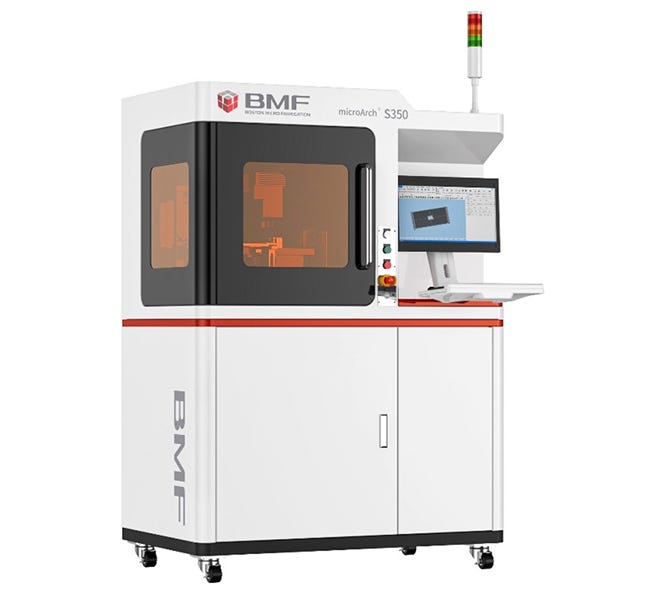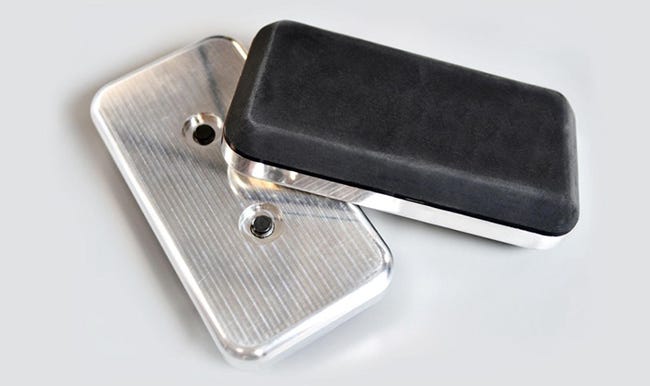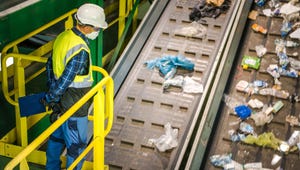Boston Micro Fabrication debuts high-throughput 3D printer that produces 25-micrometer parts and Chromatic 3D Materials has developed software that enables durable, flexible materials to be printed on metal, plastic, or textile substrates of any shape.
November 11, 2022

As additive manufacturing develops the capability to produce larger and larger parts, it’s important not to forget that the opposite is also true. Microscale additive manufacturing, also known as micro 3D printing, can produce highly detailed, complex parts that are minuscule in size. It is a sector of 3D printing that has been around for years, but it continues to grow as increasingly intricate microscale parts are produced for applications such as medicine, consumer products, and aerospace.
Companies like Nanoscribe, Nano Dimension, and others have been steadily fine-tuning their micro 3D-printing technology since their respective arrivals in the industry. One leading microscale additive manufacturing company, Boston Micro Fabrication (BMF), recently unveiled its microArch S350, the latest addition to its line of industrial-grade micro-precision 3D printers.
The microArch S350 utilizes BMF’s patented Projection Micro Stereolithography (PµSL) technology, which cures layers of photopolymer resin using a flash of UV light. The new printer can produce parts with resolutions of 25 µm with the highest throughput in the company’s current portfolio.
|
The microArch S350 from Boston Micro Fabrication has the highest throughput in the company's portfolio. |
“BMF has become the industry leader for printing small and micro-sized parts requiring high resolution, accuracy, and precision in the 2- and 10-µm resolution spaces. Now, we’re bringing that experience to an even wider range of end-use applications at the 25-µm level,” said John Kawola, CEO of BMF. “While this printer is geared more toward industrial customers that need faster throughput, greater volume, and more automation, the result is still best-in-class part quality compared to other DLP platforms, and we cannot wait to see what our customers accomplish with it.”
BMF also announced the launch of two new 3D-printing resins: BMF MED powered by 3D Systems and Loctite 3D 3955.
In other advanced additive manufacturing news, Minneapolis-based 3D-printing technology provider Chromatic 3D Materials announced the launch of ChromaScan, a software that enables 3D printing on non-planar surfaces. With ChromaScan, users can print durable, flexible materials directly onto substrates of any shape, including metal, plastic, and textiles. According to the company, ChromaScan’s technology eliminates the need for post-processing and assembly with adhesives and stitching.
|
ChromaScan software eliminates some post-processing work on 3D-printed parts. |
“Hyperbolic print paths are challenging for existing technologies. ChromaScan easily adapts a flat print path for printing on 3D surfaces. This opens up a world of design possibilities, as well as more streamlined, cost-effective, and sustainable manufacturing for our customers,” said CEO Dr. Cora Leibig.
ChromaScan works by scanning an object placed on the print bed, then manipulating the print path to create an object that conforms to its surface, no matter the shape. It is suitable for applications such as automotive, apparel, and footwear, among other consumer and industrial applications.
Developments such as ChromaScan and the microArch s350 show that 3D printing is anything but straightforward. As unconventional technologies like these develop, 3D printing will continue to show how adaptable it can be.
About the Author(s)
You May Also Like




